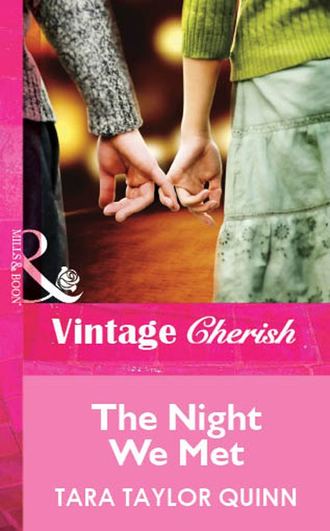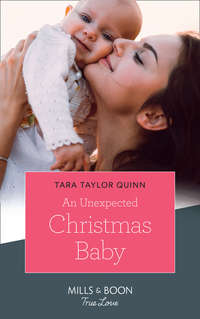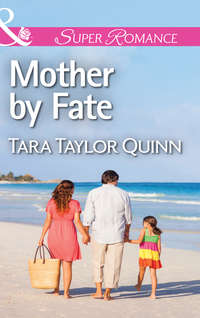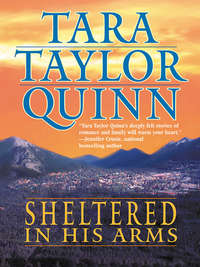
Полная версия
The Night We Met
My favorite fictional heroin flashed into my mind, a woman whose inner strength and sense of right and wrong had always spoken to me. My mother had read Jane Eyre to me as a child, and since then, I’d reread it often. Did the feelings I was trying so hard to comprehend bear any likeness to those experienced by Jane Eyre when she first met Mr. Rochester? I hoped not.
My attraction wasn’t physical or romantic. At a time when I felt lost between past and future, when I was no more than an in-between, having left behind who I was and not yet arrived at who I was going to be, Nate Grady saw a person.
I wanted to talk to him one more time.
Chapter 2
One Sunday a month, the novices at St. Catherine’s were permitted visits from their parents and siblings. That next day was one of those Sundays and with all the extra people milling around in the grounds, my departure went unnoticed. I wasn’t required to stay on the premises—not until I moved from the dormitory—but on Sundays I rarely left, choosing to study with the sisters rather than involve myself in secular activities on God’s day of rest.
Still, I wasn’t doing anything wrong in meeting Nate and didn’t really understand my relief at being able to escape unseen.
He was waiting at the entrance to the park, dressed in dark slacks, a white shirt and long, skinny black tie. His hair was neatly parted and combed to one side.
“I feel kind of silly, shivering in this sweater while you’re not even wearing your jacket.” He’d slung it over his shoulder in a way that looked casual and rakish—sexy—at the same time. I rejected that thought immediately.
“It’s nearly seventy degrees,” he said, falling into step beside me without so much as an inappropriate glance at my knees, revealed by the navy plaid jumper I’d worn to Mass that morning. Granted, I was wearing my usual dark stockings. “I can’t remember January ever being this warm. Not in my experience, anyway.”
“One year, when I was about twelve, it hit ninety-five in January. My folks cooked hamburgers on the grill and all my older brothers and sisters were there. We played Marco Polo in the pool in our backyard.”
“It’s going to be about twenty-five degrees when I get home tonight.”
His words stopped the smile on my lips—and calmed my heart. He would be leaving soon.
And I was never going to see him again.
“Did you bring anything memorable with you from Mass this morning?”
We’d been talking for almost an hour and I was beginning to feel as if Nate was an old friend. Still, the intimate query into my spiritual life threw me.
And yet it thrilled me. Other than the sisters, no one had ever engaged me in conversation about this most personal aspect of my life.
I had no idea how to answer him.
“My Bible,” I finally said, inanely.
“I meant from the sermon.”
I glanced up at him, careful to lower my eyes before I met his. I wasn’t yet under the tutelage that would require me to keep custody of my eyes, but I knew I would be soon. As a novice, I would be required to keep my gaze low, to refrain from direct eye contact. I wanted to practice it now, I told myself.
Either that, or I was afraid of liking him too much.
“Are you Catholic?” I asked him, instead of answering his question.
“I was born Catholic.” He slid his hands in his pockets and we moved around a bend filled with brightly colored blossoms. “But I’m divorced and when the Church wouldn’t recognize that, I felt kind of hypocritical staying. I’d done what I knew was right for me, but the Church expected me to remain in a marriage that wasn’t working anymore.”
I barely got through the rest of his words, stuck back in the divorced part.
“How long were you married?”
“Two years.”
“When?”
“Before Keith shipped out.”
A couple with two small children smiled at us. I felt an urge to tell them that Nate and I weren’t a couple, but held my tongue.
He’d been married at least four years ago. I would’ve been, at most, fifteen. “Why did you split up?”
“She was still at university and got involved in antiwar protests. Pretty soon they were consuming her life and I hardly saw her.”
“She was protesting the war your little brother was fighting?”
Nate didn’t say anything for a few minutes and I walked silently beside him.
“I never blamed her for her beliefs,” he said slowly as we passed an elderly man walking a dog. “I supported her right to have them.”
“So what happened?”
“She couldn’t accept the fact that I wouldn’t join her. Said she couldn’t live with someone who promoted violence. About a year before Keith was killed, she left me for a fellow student and antiwar activist. They’re married now and just had a baby.”
“I’ll bet she’s got Dr. Spock’s book,” I said to cover my unexpected desire to comfort this man. I was completely out of my element. “He was indicted last week for conspiring to help others avoid the draft,” I added when Nate said nothing.
“I hadn’t heard that.”
“I’ve been listening to the news a lot lately.”
“Because you’re interested or because you know you won’t be able to after next week?”
Could the man see straight into my thoughts? My heart? That idea wasn’t as threatening as it could have been.
“The latter, I’m afraid.”
“There’s absolutely nothing wrong with that.”
“It feels…duplicitous.”
“Wanting what you can’t have, believing the grass is greener on the other side, is part of the human condition.”
“You make it sound so…normal.”
“It is,” Nate said. “Listen, if it was easy to make the right choices, there’d be no glory in doing so.”
His words made me think.
“You’re a smart man, Nate Grady.”
He chuckled. “I’ve made some pretty stupid decisions, that’s all, and had to learn from them.”
I wanted to know what each and every one of them was.
But I didn’t dare ask.
We moved aside on the walkway to make room for a family dressed in church clothes. The son, about ten, I’d guess, had a stain on the knee of his slacks and his tie was askew. The little girl, with bows in her hair and lace on her socks, was pristine. The sight made me smile.
“You’ve never mentioned the rest of your family,” I said. “Other than Keith.”
“He was my only sibling.”
“What about your parents? I imagine they took his death hard.”
Hands still in his pockets, Nate slowed. “My father doesn’t know. He took off right after Keith was born.”
“You’ve never heard from him?”
“No.”
“Have you ever tried to find him?”
“Nope. What was the point? He knew where we were. If he wanted contact, he knew how to get it.” Nate didn’t seem bitter. Or the least bit victimized, either.
I glanced sideways as we walked, trying to see his expression. “Aren’t you curious about him?”
“Not really. I vaguely remember him. My mother said he never wanted kids and that made sense. He’d come and go as he pleased, and he never heard me when I talked to him. I don’t think he loved my mom. They had to get married.”
“Because of you?”
“Yeah.” Nate nudged a stone off the cement with the toe of his shoe without missing a step. “I suppose he wasn’t a bad guy. He didn’t beat us or anything. Some people just aren’t meant to be parents.”
I thought the man sounded incredibly selfish.
“What about your mother?”
“She loved him.”
As if that said it all.
“Do you see her often?”
“After our father left, she drank herself into liver disease and died ten years ago.”
“So she didn’t know about Keith.”
“If the alcohol hadn’t killed her, his death would have.” Nate’s voice was far calmer than mine would have been. “She drank a lot, but only after the two of us were in bed. Or out. She was a great mom, always there for us whenever she could be. She had no family support, which is why I think she fell into trouble with my father to begin with. Yet she raised two boys who knew they were loved, who never did drugs or got in trouble with the law. And she did it all on her own.”
“In his sermon this morning, Father John talked about God’s work in our society today,” I said, returning without explanation to his earlier question. “He mentioned Jacques Cousteau’s first undersea special on TV this past week. And the space-probe landing on the moon. Man’s potential is limitless. But without God’s help none of that could have happened.”
“You say that as if you aren’t sure you agree with him.”
“I don’t disagree,” I said. “Not at all.” Father John was a highly revered priest. I was a lowly postulant-to-be. “But I do think human choice and human will also contribute to scientific achievement. To any kind of achievement. What’s the point of having a mind, of making choices, if we don’t have the power to follow through on them?”
His nod encouraged me to continue. “Take your mother, for instance. She made choices. They didn’t all work. But she took what she had and made good things happen.”
“You’re pretty smart for such a young woman.” Nate’s words were teasing, mocking my earlier comments about him. And yet, they held a note of admiration.
“You sound as though you’re ancient,” I teased him.
“Compared to you, I am.”
I slid my hands into the sleeves of my sweater. “How old are you?”
“Thirty-three.”
Fourteen years older than me. Which was safer than I’d thought.
“Say something.”
“I’m surprised you even find me interesting.” That didn’t come out the way I’d meant it. I wasn’t fishing for compliments.
“You’ve got a sense of peace about you,” he said, pausing. “A kind of acceptance.”
I certainly didn’t see myself that way. But he had nothing to gain by turning my head. Our futures were clearly determined, and they’d be far from each other, with absolutely no point of connection.
“You aren’t shallow.” He started to walk again.
“Neither are you,” I said, catching up with him.
“You have something I want,” Nate said as we approached the entrance to the park and the moment I’d be saying goodbye to him forever.
I stopped breathing. And then my racing pulse forced air into my lungs.
I felt like running. But some impulse held me there, wouldn’t let me go. “What?”
“A calm and knowing heart.”
I almost wept. “Oh, Nate, if you could feel it right now, you wouldn’t say that.”
“You aren’t afraid to face life, to confront your doubts and still head off full force.”
“I’m scared to death!”
“On the surface, sure, but deep down?”
I glanced up only long enough to see the earnest question in his eyes. And without conscious thought, I entered my inner world, the mental space I flowed into when I meditated, looking for the sense of assurance that had always guided me. A world I trusted.
“Deep down I am content,” I whispered, filled with gratitude at the fact he’d just pointed out to me. I hadn’t consciously realized that my questions and confusions were only on the surface, and that inside, where it counted, I was calm. Peering up at him, I didn’t care that tears fell from my eyes. I understood now what this weekend had been all about. God worked in mysterious ways. Sent messengers in a myriad of guises.
And at that moment I knew without question that Nate Grady was one of those messengers.
Chapter 3
I spent the rest of that day with Nate. I was a free woman—didn’t have to be anywhere. The other soon-to-be postulants who were used to me hanging around the dormitory, studying or joining them in a game of croquet would be curious, but they wouldn’t be disrespectful. Nate called and got a later flight back to Boulder. And we went to a little café not far from St. Catherine’s and talked for hours. He saw so much more than most people did when they looked at daily life.
“Where’d you learn to play the piano?” I asked as dusk was starting to fall.
“Taught myself, mostly.” We were drinking hot chocolate. “My grandparents bought a piano and I’d sit down and pick out songs. I didn’t learn to read music until I was in high school.”
“You’d just hear songs and sit down and play them?”
“Eventually.” I loved Nate’s grin.
“If you heard a song right now for the first time, could you play it?”
“Probably.”
I wondered about that morning’s sermon—wondered where man’s talents were strictly his own and where God was responsible for them.
“I enjoy skiing,” Nate said. “And I love working with the kids all summer. But playing the piano…completes me.”
I understood what he meant by that. “I’m not sure I know what completes me.”
“Giving your life to the service of God?”
“Can it be that broad?” I frowned. “Shouldn’t there be some talent that’s more personally my own?”
“I don’t know.” His gaze was steady. Sincere. “What I can tell you, what I’ve learned, is that the more rules you place on whatever you’re looking for, the less likely you are to find it.”
He’d given me something else to think about.
“Like if someone spent his whole life searching for some grand purpose, he’d miss the fact that he was a great gardener and that his flowers brought comfort to hundreds of people.”
“Or the proverbial janitor whose smile touched hundreds of kids over the years…”
His words faded and we smiled at each other. An easy, comfortable communication between like spirits. I was glad I’d met him.
“You’re sure you won’t be in trouble for spending so much time with me?”
We were heading in the general direction of the convent. It was almost completely dark and I hugged my navy cardigan more closely around my body.
“While I’m living in the dormitory, I pretty much come and go as I please,” I told him. “Other than curfew, and a few rules like no food in the rooms and no male visitors, I don’t have restrictions.”
“Why no food?”
“The sisters are notoriously clean.” A trait I shared with them.
“No male visitors—has it been that way for all your college years?”
“There’ve only been two and a half of them.” I was feeling a little nervous about getting back, missing my Sunday-evening time with the other postulants-to-be. And yet, I hated to see the end of these hours with my in-between friend. “I took college classes while I was still in high school. But yes, it’s been that way the whole time.”
“Did you date in high school?”
“A little. Not much. Boys bored me.”
Except for him. But then Nate was a man—fourteen years my senior. There was nothing boyish about him.
And it was fully dark outside. Would the sisters be hugely disappointed in me if they could see me now?
“When did you know you wanted to be a nun?”
“I’ve felt drawn to the convent my entire life. I went to Catholic schools and have been visiting St. Catherine’s since I was in high school. Joining the order was a natural progression. But because it’s a teaching order, I needed to get my degree.”
“So you won’t always be living as secluded a life as you will for the next few years?”
I could see the corner far ahead where I’d turn to go home and started to relax again. I was almost there.
“Seclusion ends when I take my vows.” It felt as good tonight to be talking to him about what was to come as it had the night before. “The point of being a postulant and then a novice is to leave the world behind so I can fully concentrate on my spiritual life. I’ll develop self-discipline and spend a lot of time in contemplation of God and the vows I mean to take. I won’t associate with many people, except for others in my position.”
“Not even the nuns?”
“Except for those who oversee us, no.”
We were only a block away from saying goodbye forever.
“Can people come and visit you?”
“One Sunday a month and only immediate family.”
“What about letters?”
“I’ll be permitted to write one a week to my parents, but it’ll be read by the sisters and any letters my family sends will also be read.”
He didn’t say anything and I was afraid. It was important to me that he understand, that he not judge my choice too harshly. Though why his opinion mattered I didn’t know.
“I won’t be a prisoner, Nate,” I told him. “The rules aren’t there to confine me, but to protect me from the world so I can prepare myself for the life I’ve chosen. Or—perhaps—to figure out that this isn’t for me. The sisters work very hard to help us clear the voices from our minds so we might hear the inner guide inside us.”
“Would that everyone had that chance.” His softly spoken words quieted my heart.
“Would you hate me if I told you I wish I’d met you in another time and place?”
I’d entered the grounds—closed the heavy iron gate behind me. The drive, which had been lined with cars earlier that day, was now deserted. Silent. Dimly lit. Before I could take another step, his words reached me.
I turned back to see Nate standing with both hands clutching the black metal. And lost the battle I’d been fighting with tears since my hastily muttered goodbye—my wish for him to have a safe and happy life.
“Where and when would that be?” I whispered. “Anywhere I go, I’ll be who I am right now.” A woman who was bound for a life of poverty and chastity. “And you’ll still be fourteen years older than me, living in another world.”
“I will never forget you.”
“Nor I you.”
I walked away then. Because it was the right thing to do. I trusted that, deep inside, it was what I wanted to do. I would miss Nate, but I hardly knew him. I was committed to God.
My tears continued to fall long into the night—and I asked forgiveness for shedding them.
On Thursday, having spent four days cloistered in my room, at confession, at Mass or in prayer, I shared a silent lunch with several of the other candidates who’d be joining the order with me the following week. Afterward, back at the dormitory, I found a letter waiting in my cubicle.
Assuming it was from my sister June in Cincinnati—she was the only one who ever wrote me—I tossed it onto my cot. On its way down, the bold, virtually illegible writing that served as a return address caught my eye.
My sister’s writing was small. She always printed.
Sick to my stomach I sat beside the envelope, staring at it. I shoved my hands beneath my thighs. A white, sheetlike curtain separated my area from the other six cubicles in the long room, but the privacy it offered wasn’t necessary at the moment. I was the only one there. The rest of the girls were on the lawn playing volleyball.
I’d thought of Nate often that week. And repented afterward—each and every time. I still believed he’d been heavensent, to show me that my confusion and questions were momentary and my soul was content. I also feared he might be my temptation.
A few nights before, very late, I’d awakened from a dream about Nate—and lain there wondering what it would feel like to be hugged by him. To be kissed…I’d been afraid to go back to sleep in case I dreamed of him again.
He’d shown me the inner peace I possessed, yet it had remained elusive since the moment I’d turned my back and walked away from him.
I understood that this was one of life’s contradictions. That human need to want what you can’t have, as he’d described it. Was this a test of my resolve? I wondered.
My mind would not be quiet.
The envelope had to be dealt with. I could throw it in the trash. Perhaps that was how I passed this test.
But what if he had something to say that I needed to know? Some insight or revelation that would bring clarity back to my heart. What if he was sick? Or injured?
He’d never shown any inclination to be anything but proper with me. Our association was a moment in a lifetime—there, and then gone. We’d been brought together to strengthen each other, I told myself, to bless each other’s lives, and then move on. Only my obsessive inability to let go of my earthly thoughts was a problem.
I picked up the envelope.
I was not going to tarnish the gift of Nate’s brief friendship with the dark side of human nature. Of my nature.
After waiting until my stomach felt calm, I slit open the envelope. Two sheets of folded paper slid out. There was writing only on the inside, but through the paper I could see that he’d written more than one paragraph.
Looking around to make sure I was still alone, I unfolded the long sheets.
My dearest Eliza,
My heart skipped a beat as I read the greeting. I wasn’t his. But it felt good to read the words, anyway—as though I had a special, sacred friend. A friendship outside the boundaries and beliefs that defined my life. Outside the opinions and judgments of others.
My hands were shaking so hard it took me another second to be able to focus on the next words.
Please forgive my intrusion. I have struggled with myself since leaving you at the convent gate on Sunday night, knowing that when I walked away it had to be forever. And yet something inside me compels me to contact you, to speak of my heart, and let fate, or your God, or whatever powers that be take us wherever they must.
The rest of the world faded away and I read on as though my entire being rested on these next moments.
Had you known me more than a day, you’d know that I’m a man who always thinks before he leaps. I carefully plan before I step. There’s a reason for everything I do, and I’m aware of the reason before I do it.
Until now. I have no idea why I feel I have to write this letter, but I won’t rest until it’s done.
I don’t have an explanation for what I’m about to do and have no way to convince you that I’m fully sane as I sit here. I know only what I know and it is this:
I love you. I believe you are my soulmate. I would give this more time, not to convince myself of the rightness of what I’m feeling, or because I have any doubt, but to give you time to know me more completely. I would attempt to court you according to societal expectations, except that in one short week you will be lost to me. I know that once you make a commitment, you make it fully.
In this untraditional and inadequate way, I must ask, Will you marry me, Eliza Crowley?
I read those words and can’t believe I’m doing this. You have me so tangled up I hardly know myself.
And as I consider what I’m asking, I must, in all fairness, tell you about myself. I have a temper, but most times have pretty good control over it. I cannot promise not to get angry with you. Nor can I promise to make every moment for the rest of your life a happy one. I can’t assure you that I won’t ever make you angry or disappoint you. I can tell you that I’ll try always to listen to both sides and to consider you fairly in every decision I make.
I can also promise that I will love you until the day I die and beyond.
I don’t say any of this to pressure you. I do not intend to contact you again, or to try in any way to convince you to accept my proposal. As I said, I believe you are my soulmate but don’t know if we’re meant to be together in this lifetime. If not, I will wait until we meet again.
Yours,
Nathanial Grady
Joy unlike any I’d experienced before coursed through my body. It was followed by a sense that something in my life had just settled into rightness.
The sensation lasted about ten seconds, until my eyes focused on the letter and I read it a second time. It was a fairy tale, better than most of the stories my mother had read to me when I was a child—with the exception, maybe, of Jane Eyre.
It was the stuff that dreams and magic—not lives—were made of. Like my association with Nate, it was a moment, not solid, not sustainable.
I couldn’t possibly marry him. I didn’t even have to ask myself before I knew the answer to that. I’d committed myself to vows of chastity. I truly wanted the life I’d chosen for myself.











